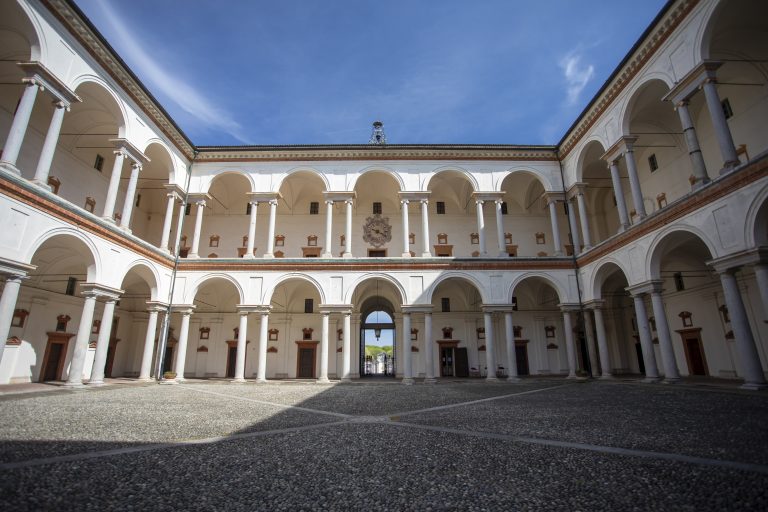2nd AI-INFN Advanced Hackathon
Collegio Borromeo, Pavia
Welcome to the Second edition of the Advanced Artificial Intelligence @ INFN (AI_INFN) hackathon, dedicated to INFN employees, associated members and students. This edition is hosted at INFN Sezione di Pavia.
AI_INFN hackathons are developed in continuity with ML_INFN hackathons. You may want to check the indico pages of the first (entry level), second (entry level), third (advanced level), fourth (entry level) and fifth (advanced level) editions of ML_INFN hackathons, and for the first (advanced level) edition of AI_INFN, with most of the talks attached as video files.
The mandatory registration process will be open soon.
In case of a number of registrations exceeding the available positions, the applications will be ranked and selected on the basis of the scientific CV of the applicants and of the order of registration.
The successful applicant will be informed soon. Please do not book hotel/flight before a positive confirmation.
The course is to be considered as "advanced level" for Machine Learning topics. The hackathon will be organized over 4 days, with a focus on
- Machine Learning models for experimental Particle Physics
- Quantum Machine Learning
- Machine Learning in Medical Physics
- Machine Learning for Gravitational Waves
- Deployments in hardware with FPGA
The afternoons of the second and third days will be devoted to experimenting the various methods and architectures with the help of tutors.
Upon registration, users will be asked to express their preferences for a one of the use cases offered. We will try to
- whenever possible, satisfy the preference in the order given
- try to form groups with students with the full range of proficiencies, in order to allow for self-tutoring inside the groups
The list of available use cases for the hackathon are currently (there could be additions depending on the registration process and on the status of other opportunities):
- Physics Informed Neural Networks applied to dosimetry in Medical Physics;
- Quantum Machine Learning with QUBO;
- Compression pipelines for Gravitational Waves deployed in hardware with FPGAs
- Explainable GNN architecture with a mixture-of-experts orchestrator with ATLAS Open Data
Prerequisites
Technical: access to INFN Cloud provided resources
NOTE: users will use INFN-Cloud resources and this does not require any specific INFN-Cloud authorization.
Machine learning related knowledge
The hackathon is to be considered as advanced level for Machine Learning. Hence, students are expected to have a starting level of understanding of machine learning and on the technologies it implies. For example
- good fluency in Python:
- program flow, definition and use of variables
- definition and utilization of functions
- package management (import, install via pip)
- fluency in numpy:
- arrays, basic operations, reshaping
- fluency on matplotlib:
- how to define and plot a basic figure
- fluency on online python notebooks
- (like SWAN, Jupyter, Google Colab)
- basic concepts of Deep Learning
- (e.g.) working principle of dense and convolutional layers
- epochs, batches, optimizers, metrics...
Registration
Attending the hackathon is free but the registration is mandatory (see the side menu).
The number of participants can be limited, depending on the tutoring and technical capabilities.
Upon registration, we will require:
- INFN association (or INFN supervisor)
- Research interests
- Proficiency level in Machine Learning and related tools
- Specific interests in Machine learning techniques
- The preferred use case for the second and the third day (first and second choice)
Sponsors and support to the event
The event is sponsored by the Pavia unit of the Italian Institute for Nuclear Physics (INFN), by the Physics Department of University of Pavia, and by the Italian Research Center on High Performance Computing, Big Data and Quantum Computing (ICSC Foundation).
We gratefully acknowledge support from INFN CNAF, INFN Milano Bicocca and ReCaS Bari for providing hardware infrastructure and technical support.



